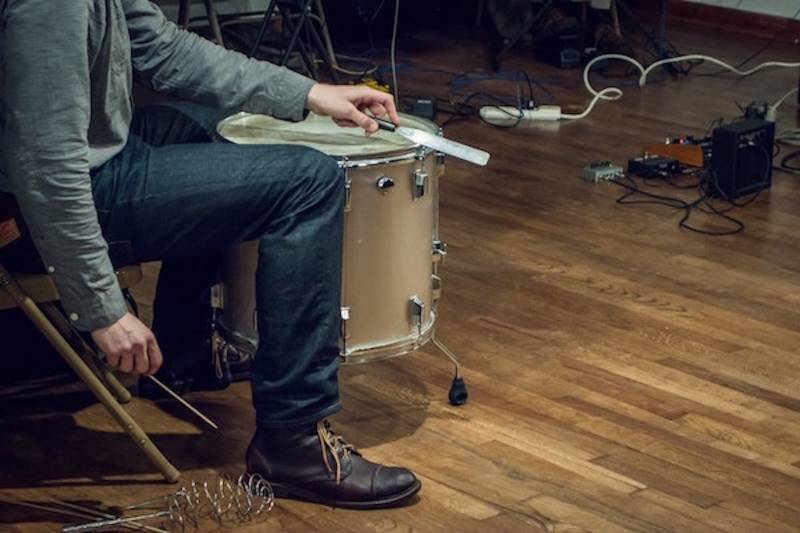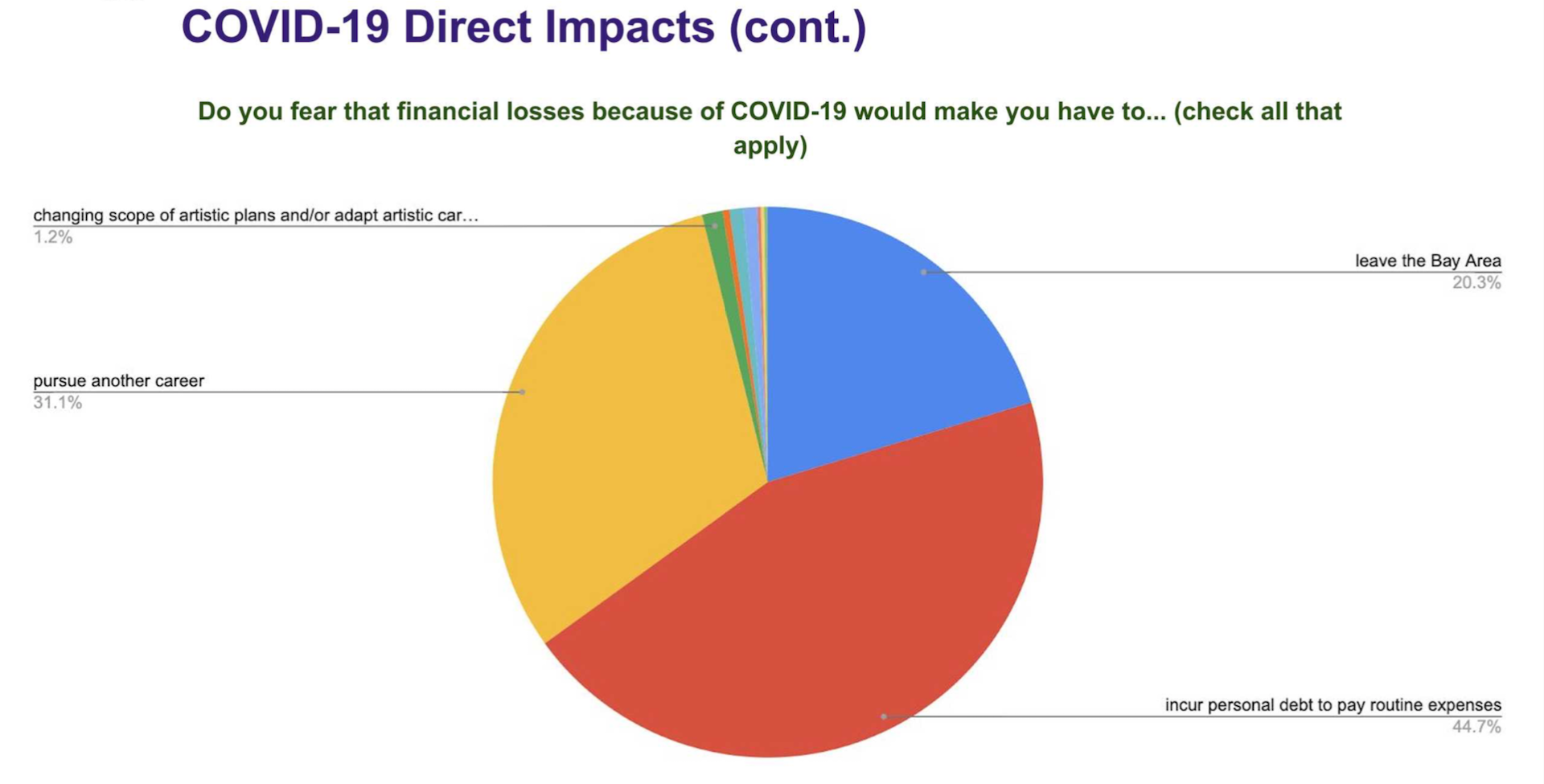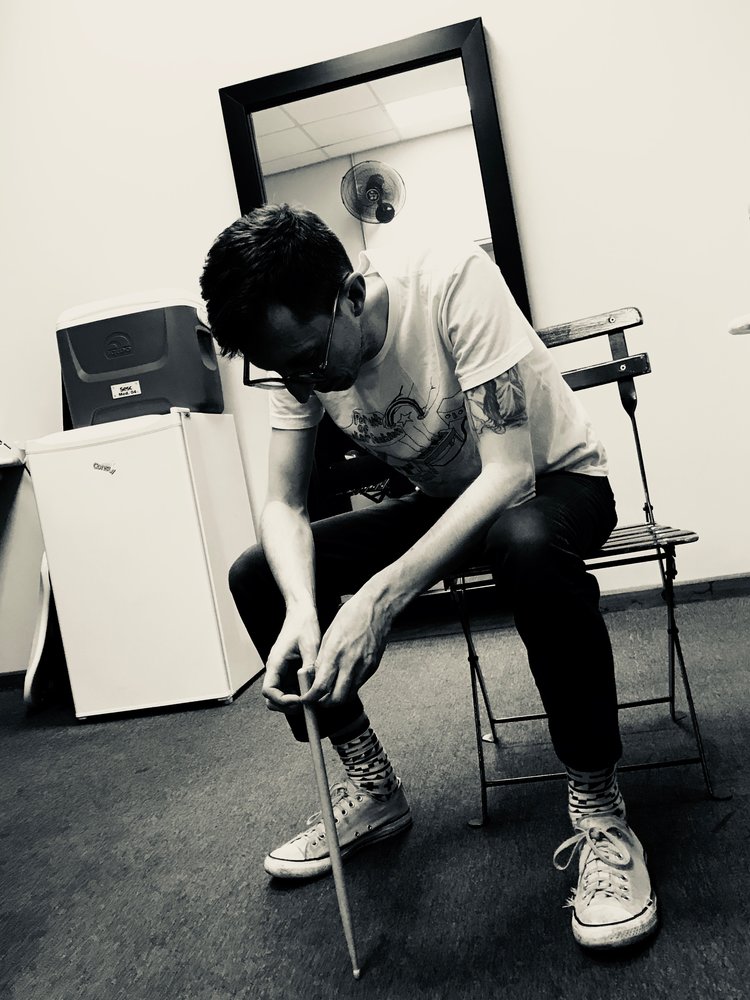When seven Bay Area counties announced shelter-in-place orders to stop the spread of coronavirus on March 16, concert cancellations cost Oakland guitarist and improviser Karl Evangelista more than a thousand dollars in expected income. Then came the painful postponement of the San Francisco International Arts Festival. That derailed months of planning to convene an international quartet to perform his multimedia composition Apura and mark its release on the Astral Spirits label. Evangelista had fronted thousands for flights alone.
Isolation and Lost Income Rattle Struggling Experimental Musicians

Evangelista, a busy member of the Bay Area experimental music scene, feels fortunate to have only been laid off from one of his teaching gigs, and has lately turned his attention to organizing—and trying to monetize—livestreamed performances. But he’s anxious about the disruption’s lasting effects on a community already challenged by Bay Area housing costs and dwindling venues, as well as the emotional toll of isolation and other creative constraints.
“Improvised music being collaborative in nature, this is having a severe psychological impact on musicians who are basically unable to create,” Evangelista says.
No corner of the local music scene is spared harm, but the pandemic restrictions uniquely threaten independent artists in the experimental, jazz and improvisation community. Many of them live gig-to-gig on teaching, performing and audio engineering opportunities, all of which are diminished. Few derive meaningful income from physical merchandise or streaming. Layoffs are also hitting their day jobs: arts administration, music technology, food service, record stores.
“There isn’t the audience to graduate your career like in some genres,” Brent Miller, composer and co-founder of the San Francisco venue Center for New Music, explains. “There’s no clear path.”
Now, the congregating and collaboration that usually justifies the struggle is outlawed.
Between earlier challenges and this indefinite period of economic freefall and creative frustration, experimental musicians are nearing a breaking point. “When will this end?” Evangelista wonders. “Not knowing is the most troubling thing.”
The results of a new Center for New Music survey, shared exclusively with KQED, show 425 respondents working in generally non-commercial styles have already lost an estimated $1.5 million in expected income, a number projected to grow to $4 million if restrictions persist through the summer. Many fear they’ll be forced to incur personal debt (44%) or pursue another career (33%). 20% of the respondents worry the crisis will force them to leave the Bay Area altogether.

Most respondents to the survey, coordinated with InterMusic SF, Lisa Mezzacappa, Jazz in the Neighborhood and Bird & Beckett Books & Records, earn money as music educators and freelance performers. More than half of the 262 music teachers have lost significant income in the shift to online instruction, and more than half of the 125 teachers affiliated with a school believe they’re ineligible for unemployment benefits. Although the federal aid package expanded unemployment eligibility to independent contractors, Evangelista says some of his freelance musician friends have been denied without explanation. More than half of the self-employed survey respondents are unsure if they have enough documentation of lost wages to apply.
“I knew the survey would show fear,” says Miller. “But I was stunned to see more than 5,000 concerts canceled.” Miller also points out that though the respondents perform mostly in San Francisco, many of them live in other parts of the Bay Area. That means they are ineligible for San Francisco’s Arts Relief Program, and there’s no comparable fund from the cities of Berkeley or Oakland.
“Many of us were priced out of San Francisco but still do our work there, and now we’re not eligible,” he says. The Center for New Music, meanwhile, is struggling to make up for lost rental and co-working membership income, which it normally relies on to subsidize experimental music programming.
Many musicians with abundant time to practice now lack the space. The 34-unit Jack London Rehearsal in Oakland is closed to comply with the prohibition of non-essential businesses; tenants make appointments to retrieve instruments. Jordan Glenn, an Oakland drummer and composer accustomed to a rotating cast of collaborators, has had about ten gigs and two recording dates canceled. He set up a dampened kit at home to continue giving lessons through the San Francisco Rock Project, but feels creatively constricted in unanticipated ways.

“Playing with people, all of my commitments, they’re a kind of practice,” he says. “Without that or the space to play without self-consciousness, I’m left with my head games—it’s getting tough.”
Oakland Music Complex, the largest rehearsal space in the Bay Area, is leaving artists to assess the safety of visiting the building, and has reduced April rent by half. Tom Ferguson, an Oakland bassist in bands including Moe Staiano’s avant-rock group Surplus 1980, says half of the 10 people in his space are full-time musicians, and they’re all avoiding the unit. His upcoming tour with songwriter Bill Baird is canceled, along with recording sound engineering dates. He’s also furloughed from his job at Keith McMillen Instruments.
“I miss the social aspect,” Ferguson says. “The reason I’m here is to contribute to the community of artists and musicians, so when there’s no gigs and no recording sessions I feel like a fish out of water.”
Experimental musicians, like others in the arts, are exploring livestreaming as an imperfect alternative to concerts. Earlier this month Evangelista organized Lockdown Festival, five hours of continuous performances by local musicians in different locations. It featured performers including Marshall Trammell, Scott Amendola and the duo Voicehandler, comprising Jacob Felix Heule and Danishta Rivero Still, Evangelista said he found not all artists have the equipment required to livestream, and there’s little guarantee viewers are willing to pay the equivalent of a door fee to watch from home. Few are eager to embrace live video as an interim solution, let alone the new normal.
Still, some small venues are beginning to adapt. Bird & Beckett in San Francisco is streaming performances from the closed shop on Facebook while collecting donations. Pro Arts in Oakland, a nonprofit gallery that’s absorbed many of the experimental gigs displaced from underground venues in recent years, is similarly developing a livestream studio, and recently issued an open-call for digital media submissions to be shown as online events for a fee that benefits artists. Natalia Mount, director of Pro Arts, also wants the gallery to provide resources in other ways, for instance distributing toiletries.
“For us it’s just another day—we’re always on the precipice of closing,” she says. “So at least we can continue to experiment with the space.”

